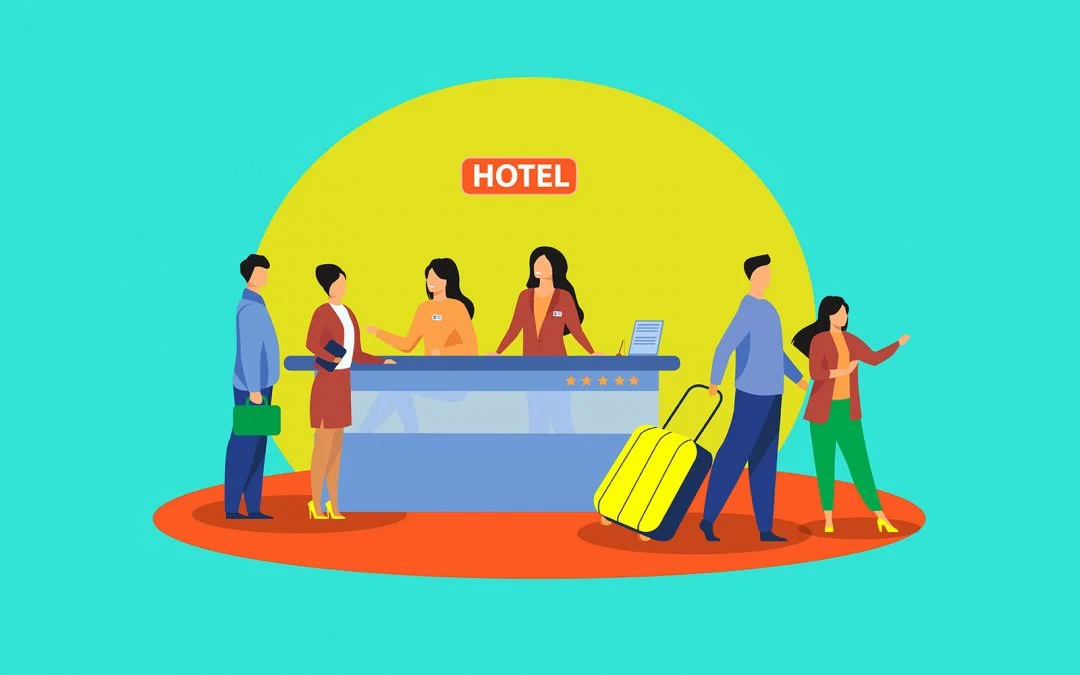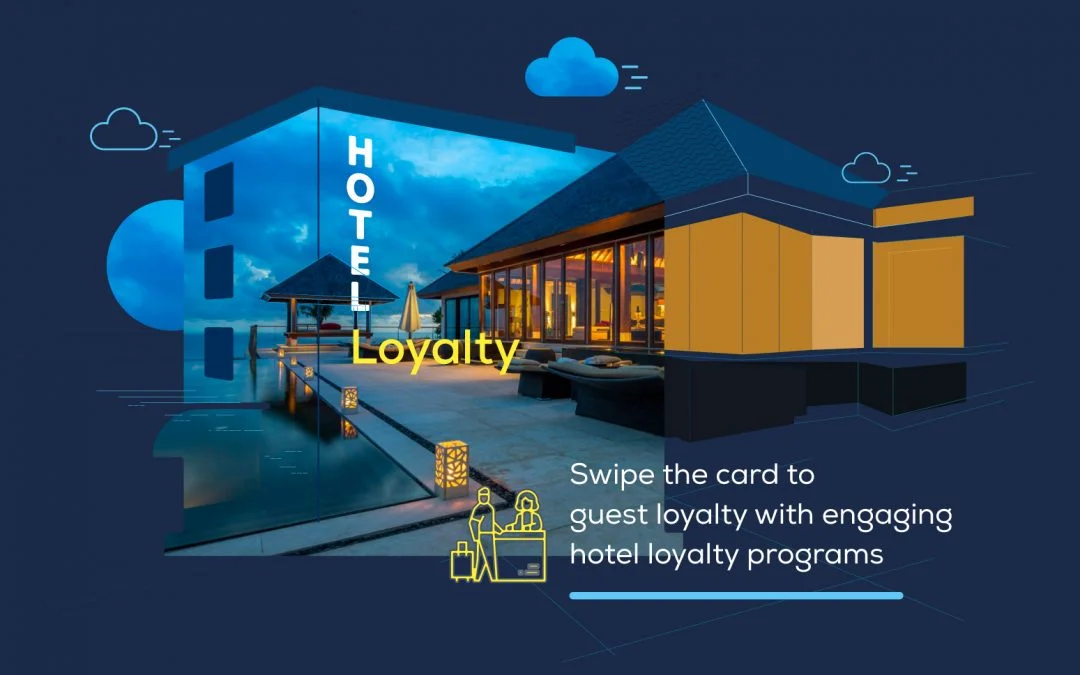- Design industry shaping loyalty programs
- Integrate easily and go live quicker
- Deliver hyper-personalized consumer experiences
Blue Rewards from Al Futtaim Group Shares Loyalty Success Stories and Evolution. Watch Podcast >
Capillary Announces 2nd Annual Captivate 2025 Summit: Transforming Loyalty Management with New AI Tech Read more >

We are referring to the (erstwhile) frequent traveler’s elite status in glitzy hotel chains worldwide. If you have been a busy business traveler or a globe trotter, you will agree to this. COVID-19 made your top-tier memberships with hotel brands practically useless overnight! You may still have those points in your account, but the truth is, they are expensive to maintain and difficult to dispose of – now more than ever. That’s because post-COVID, the why and how people travel will change forever.
Consider business travel. Once companies realize how many customer meetings and industry events they can accomplish virtually, flight expenses and hotel reservations will be the first to vanish from their budgeting exercise.
Even for leisure travel, the brand magnet will get weaker due to the harsh limitations on movement imposed by governments. And when people open their eyes to a multitude of unconventional and spacious bed-and-breakfast options for staycations (typically away from the buzzing cities and closer to greens), hygiene, health, and safety concerns will be top priorities. So much so that guests may even prefer do-it-yourself (DIY) housekeeping and kitchenettes. That is, when and if they decide to travel again.
Certain hotel loyalty programs are well poised to leverage this excellent opportunity.
For instance, Accor’s Live Limitless program allows guests to redeem points to enjoy extraordinary stays in 5000 private homes and villas in 50 destinations across the world as part of its onefinestay concept.
As travelers and guests make the big shift in their expectations, preferences, and behavior, hotel loyalty programs have to follow suit. The greater part of 2020 saw leading hotel chains worldwide continually adjusting and modifying their customer loyalty programs to stay relevant in the COVID-triggered travel bans. Let us take a quick look at some of these notable changes in the hotel and hospitality loyalty landscape.
As early as March 25, 2020, Hilton Worldwide Holdings Inc. announced changes to their Hilton Honors program in a customer-friendly gesture. They extended their elite status and paused points expiration. They also extended night award certificates and doubled the validity to 24 months for new certificates issued between May 1 and December 31, 2020.
A majority of the hotel chains also started offering more flexibility to customers wanting to change or cancel their hotel reservations in the wake of the pandemic. Again, this was a customer-centric approach. It indicated the brand’s sensitivity to the larger ecosystem and their guests’ safety and financial concerns.
Marriott International, for example, made it extremely lucrative to buy Marriott Bonvoy points. They brought the purchase rate down to 0.78 cents per point. This move was a win-win since it encouraged customers to continue engaging with Marriott and generated the much-needed cash for the hotel chain.
Accor, the European hospitality giant, allows members to earn and use reward points on their bar and restaurant orders, even when they are not staying at the hotel.
Members can order take away or home delivery and start earning reward points on orders from as little as €1 if they download the Accor All app.
Customers could earn 6x Marriott Bonvoy points on spending up to $ 7,500 at US supermarkets from May through June 2020. Similarly, they could earn 12x Hilton Honors points. Takeaways and deliveries from U.S. restaurants also qualified customers for resort credits at both the hotel chains. These changes drove customer loyalty at a critical time when traveling was out of the question.
These short-term adjustments made to their loyalty programs by leading hotel chains are not a flash in the pan. Even though vaccine hopes have grown stronger, travel disruptions will continue well into 2021 since there are multiple variables involved – like the economic viability for airlines to continue social distancing on planes, the reliability of antibody tests, vaccine adoption rates, and if immunity is lasting, to name but a few.
In the meantime, travel habits will undergo a huge change. If hotel chains want to spring back to pre-pandemic times fast enough, they will need to stay on their feet in engaging customers beyond the spend-and-stay relationship. Thus, we foresee a shift from the transaction-based hotel loyalty programs to a more holistic, customer-oriented approach – one that will rest on a 360-degree understanding of the customers.
As demand dips (due to safety apprehensions and economic slowdown) and customers’ bargaining power increases, hotel chains will face fierce competition to attract and retain returning guests. A thoughtful, data-driven, and creative approach to loyalty programs will be the key to survive the transition and to lead the way for the entire travel and hospitality industry. Below are some loyalty strategies and tactics hotel and hospitality brands must adopt to stay ahead in this new reality.
What it implies:
Hotel chains will need to look at their customer profiles in a 360-degree fashion. They will need to integrate offline and online interactions, past and plausible future behavior. And they will need to observe demographic, psychographic, and behavioral insights to create micro-segments that can help in delivering personally meaningful offers.
Ideas:
Can you send offers based on geo-locations? Or use the decision-making criteria of the ‘chief travel influencer’ in their family? Say they may want a kids-friendly or a senior-citizen friendly stay experience. Conceptualizing such personalized offers will require you first to know their location at any given point, who their travel and stay influencer is, and have a deep understanding of their decision-making criteria.
Example:
The Kimpton hotel’s Karma Rewards program excels at creating personal experiences” for its guests and enjoys a 93% customer satisfaction score. The algorithm tracks member’s stay and purchases, the channel they use for bookings, the events they attend, and more. This allows the chain to treat individuals as individuals and delighting guests when they least expect it.
What it implies:
Think of all the ways your customers could create long-term value for your brand even without making another room reservation. And then get them involved and excited about doing so.
Ideas:
Can you make it fun for members to plan their first post-COVID trip virtually? Can you reward them to publicly share their stay experiences in the form of a blog or photo album on social media? Can you reward them for inviting their travelholic friend to your program? Can you partner with non-hospitality brands and reward your customers for check-ins (QR code scans) at these partner outlets? Can you dispatch rewards/souvenirs of the stay experience to keep their travel fire alive? There are endless ways to make this work and it’s only limited by your imagination and the capabilities of your loyalty program platform.
Example:
Marriott Rewards program lets its customers earn loyalty points by merely getting vocal about their stay on Twitter, checking-in via Facebook, or publishing a photograph on Instagram with a specific hashtag. These are incredibly flexible and engaging opportunities for building loyalty and promoting their brand hand-in-hand.
What it implies:
Mariott found in its research that guests are yearning for self-improvement activities such as sports or cooking. It helps increase their self-worth and satisfaction. In tune with this, hotel chains should broaden their rewards and incentives beyond just points. Your loyalty program offers you an in-depth understanding of your guests’ innate drives and desires. Helping them tick off things from their bucket-lists can unlock massive value for your loyalty program.
Ideas:
Can you get guests involved in a social or environmental cause during their stay? Can you involve them in your kitchen as a gesture of letting them take greater control of what they eat and assuring them of your hygiene standards? Can you offer members a free pass to an exclusive event at one of your properties? Can you develop a unique domestic travel package for your patrons where they can enjoy a road trip to open, greener spaces, travel locally in smaller groups, and get acquainted with like-minded folks? How about a complimentary guided tour of one of your historical properties? What about timeshare experiences and vacation rentals? Can you make the check-in and check-out touchless?
Example:
An Airbnb rental in Paris roped in an artist from the Louvre museum to conduct classes on sculpting a head from clay. Another one in San Francisco offers classes on making a French macaron.
Undoubtedly, these are tough times for the hotel and hospitality industry. But with creativity and customer-centricity, hotel chains can use this pause to realign their loyalty strategies, program perks, and customer engagement. As Christine Duffy, President, Carnival Cruise Line, says, “what travel supplier CAN control is our response, and new procedures and protocols to build and maintain the confidence of guests, employees and government officials.”

January 6, 2021 | 4 Min Read
The White Elephant We are referring to the (erstwhile) freq

October 21, 2024 | 8 Min Read
Every guest is different, having varying preferences for dis

March 22, 2023 | 4 Min Read
Partnership will help airlines and hoteliers delight travele